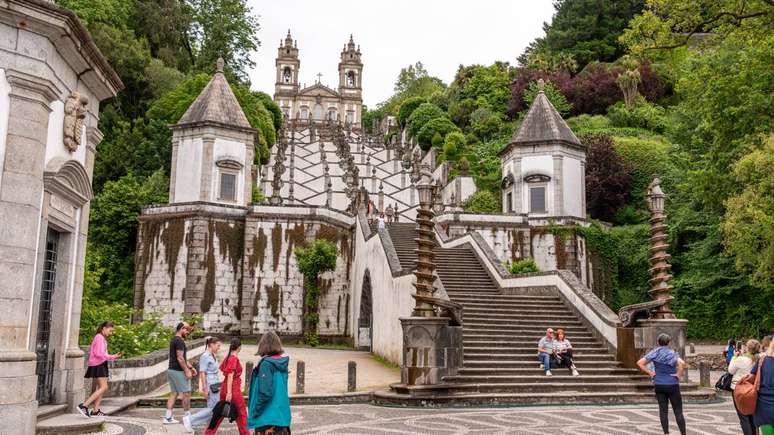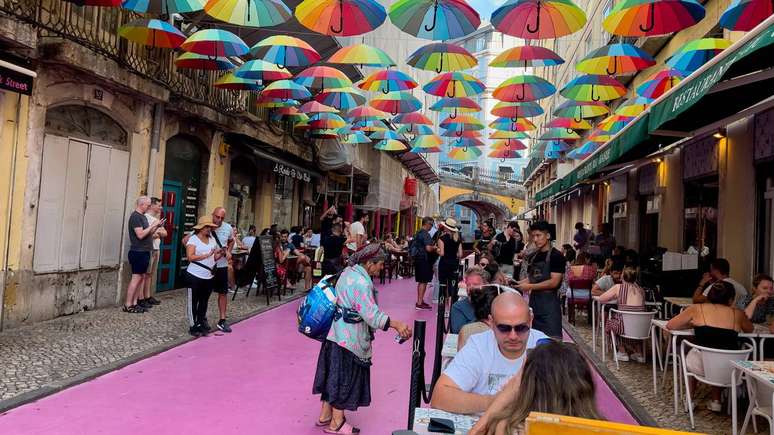Portugal’s new legal immigration framework, effective October 23, has brought about important changes. It particularly affects Brazilians who chose to apply for residency after entering as tourists. Understand how it works!
Portugal is a frequent destination for people of different nationalities looking for new opportunities. Now, the country has implemented significant changes to its immigration legislation, changing the rules to legalize immigrants and making the process more stringent. The new regulatory framework, in force since 23 October, has brought about important changes. It particularly affects Brazilians who chose to apply for residency after entering as tourists.
These updates to Portuguese migration policy have redefined the criteria and restrictions for granting visas and benefits to immigrants. After all, by limiting access to residency only to certain professional profiles, the legislation makes it difficult for those who wish to remain in the country to legalize without meeting the new requirements. Below, we illustrate in detail the main points of this new scenario for foreigners who intend to live in Portuguese territory.
What are the main changes in legislation for immigrants in Portugal?
The new immigration law in Portugal has strengthened several aspects that previously opened gaps for the legalization of foreigners. One of the central points is the granting of work visas. They are now reserved for highly qualified professionals. Services such as tourism, hospitality and trade, sectors that previously absorbed a large part of foreign workers, now require specific training tests, excluding those who do not have these certifications.
Another important aspect is the limitation of requests for stay by tourists. The procedure, widely used by Brazilians and citizens of other Portuguese-speaking countries, has been abolished. Previously it was possible to enter as a tourist and apply for residency after finding local opportunities. Now, however, entry will have to be supported by specific work contracts or visas from the beginning of the trip.
The impact is great for Brazilians. Traditionally, they have benefited from linguistic ease, the bilateral agreement between Brazil and Portugal, and the ability to enter as a tourist for up to 90 days and apply for residency thereafter. With the end of this procedure, access to regularization has become substantially more difficult, especially for those seeking work in less specialized sectors. Now, Brazilians will be required to demonstrate professional experience and have a previously approved formal job offer. The greater rigor in validating foreign diplomas and in requiring certifications for some professions also has a direct impact on this public. In particular those who arrive without recognized qualifications in Portugal.
How does the new law affect family reunification?
In addition to changes related to the labor market, the process of family reunion also underwent significant changes. According to the new legislation, legalized immigrants will be able to request the arrival of their family members only after two years of residence permit in Portugal. To prove the marital relationship it is necessary to demonstrate cohabitation for at least 18 months before arriving in the country. The only exception is minors, who retain priority in reunification processes.
This measure aims to guarantee control over migratory flows and avoid situations of abuse of the benefits granted to family members. Therefore, the requirement for more rigorous supporting documentation introduces further difficulties for those seeking to bring relatives to live in Portugal.
For Brazilians, who often resorted to reunification to reunite families already established in Portugal, the new requirements bring challenges, especially due to mandatory waiting times and the need to demonstrate ties before arriving in the country. Many Brazilians who emigrated alone and subsequently regularized their family members will now have to evaluate new group migration strategies or wait a longer period for family reunification.

Which bodies control and inspect immigrants?
An important innovation in Portuguese legislation was the transfer of responsibility for monitoring immigrants to a specialized unit within the Public Security Police. THE National Foreigners and Borders Unit was created with the aim of monitoring, controlling and monitoring the permanence of foreigners throughout the national territory. With this change, the monitoring of irregular processes and situations has become centralized, giving greater agility to inspection and repression actions against illegal practices related to immigration.
This body operates both in the renewal of authorizations and in the investigation of complaints, in monitoring the entry, stay and exit of foreigners, as well as promoting periodic operations in collaboration with other government institutions.
Measures and precautions for those who intend to live legally in Portugal
In compliance with the new rules implemented, those interested in residing in Portugal must follow some specific procedures, starting from their country of origin. Key steps include:
- Search and apply for vacancies in areas recognized as qualified.
- Get a formal job offer before boarding.
- Apply for the correct visa directly at the Portuguese consulate in your home country.
- Gather all required documentation, including professional certificates, evidence of experience and criminal records.
- Wait for visa approval and then travel to Portugal with your situation regularised.
Furthermore, it is important to frequently monitor official information and any updates to the requirements, since migration policies may undergo adjustments depending on the needs of the country and the international scenario.
- Get specialized advice on immigration law to avoid mistakes during the visa application process.
- Keep all documents updated and translated as required by Portuguese bodies.
- Pay attention to the deadlines for applications, permit renewals and family reunification.
Given the transformations implemented, the immigration scenario in Portugal requires careful planning and greater attention to legislation. Changes such as the restriction of visas for tourists and the limitation of family reunions reveal a trend towards greater control over migration flows into the country. Adapting to the new regulations is essential for anyone who wants to start a life project on Portuguese territory in a regular and safe way.
For Brazilians wishing to immigrate, It is essential to invest in recognized professional qualifications, plan the migration process in advance, seek up-to-date information on the validation of diplomas and consider legal entry alternatives, such as study visas or special entrepreneur visas, where applicable.
Source: Terra
Ben Stock is a lifestyle journalist and author at Gossipify. He writes about topics such as health, wellness, travel, food and home decor. He provides practical advice and inspiration to improve well-being, keeps readers up to date with latest lifestyle news and trends, known for his engaging writing style, in-depth analysis and unique perspectives.









